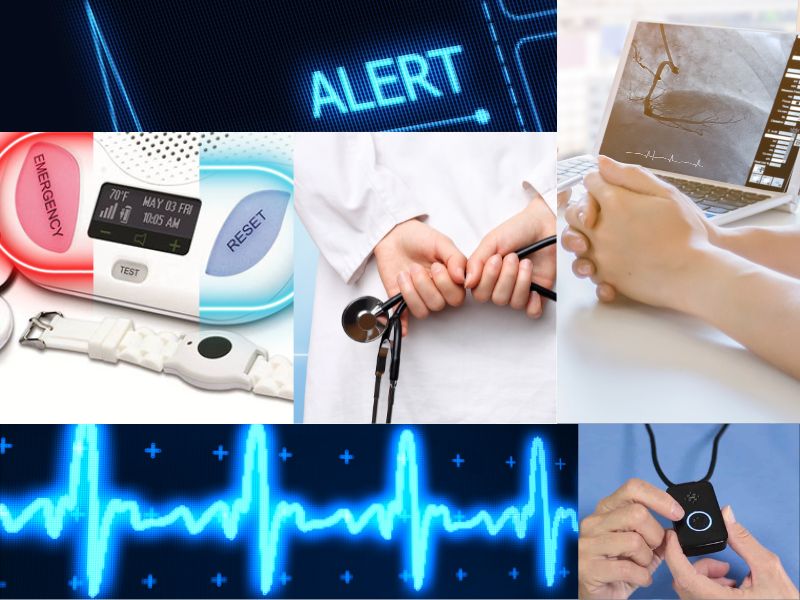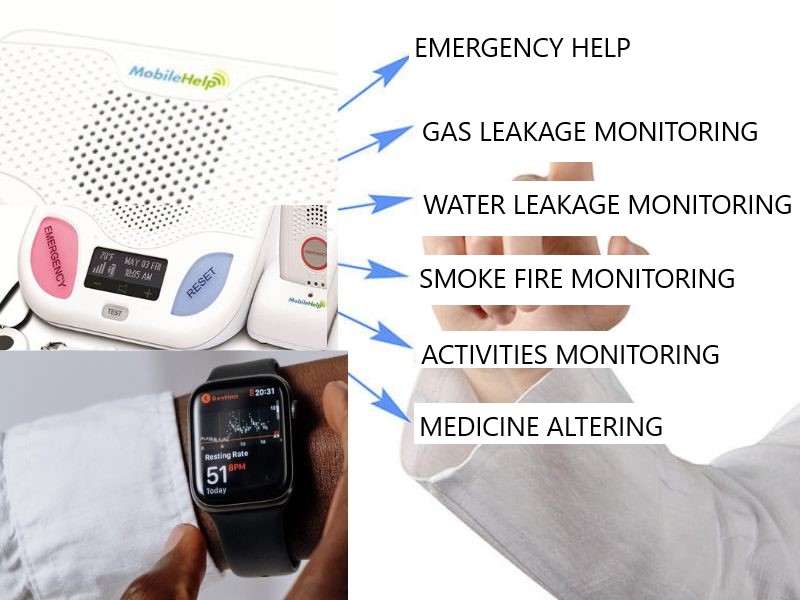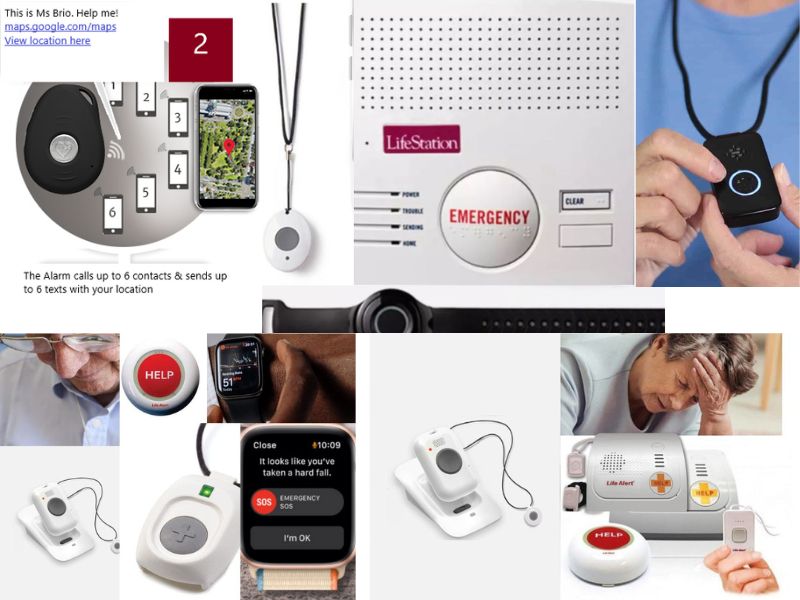Are Medical Alert Systems Worth It?
Medical alert systems are an important investment for seniors and individuals with medical conditions who live independently. While the cost of a medical alert system can vary depending on the provider and the level of service selected, the peace of mind and security it provides are priceless.

With the press of a button, a medical alert system can summon help in case of a fall, injury, or other emergencies. It can also provide medication reminders, activity monitoring, and GPS tracking, making it an excellent tool for managing chronic conditions.
By investing in a medical alert system, seniors and their loved ones can have confidence that help is always within reach, even when they are alone. Additionally, many medical alert systems offer a variety of affordable pricing options, including discounts for paying annually or quarterly.
Ultimately, the cost of a medical alert system is a small price to pay for the added safety and security it provides.
Types of Medical Alert Systems
There are several different types of medical alert systems available on the market. The most common types include:
In-Home Systems
In-home medical alert systems are designed to be used inside the home and typically consist of a base station and a wearable alert button. The wearable button can be worn around the neck or wrist and pressed to call for help.
Mobile Systems
Mobile medical alert systems are designed to be used outside the home and typically include a wearable alert button with GPS tracking capabilities. These systems are ideal for active individuals who frequently leave their homes.
Fall Detection Systems
Fall detection systems are designed to automatically detect falls and alert emergency services if users cannot press their alert button. These systems can be added to either in-home or mobile medical alert systems.
Smartwatch Systems
Smartwatch medical alert systems offer all of the benefits of traditional medical alert systems but with the added functionality of a smartwatch. These systems can track fitness, monitor heart rate, and provide reminders for medication.

What are the Helpful Features of Medical Alert Systems?
Medical alert systems come with various helpful features that can provide peace of mind for the user and their loved ones. Some of the most common features include the following:
Emergency Response
One of the most important features of a medical alert system is the ability to call for emergency response in case of an accident or emergency. By pressing the emergency button on the device, the user can quickly connect with an operator who can dispatch emergency services to their location.
Fall Detection
Many medical alert systems have sensors that automatically detect falls and trigger an emergency response. This can be especially helpful for individuals at risk of falling due to mobility or balance problems.
GPS Tracking
GPS tracking allows caregivers and emergency responders to locate the user in an emergency, even if they cannot provide their location. This feature can be especially helpful for individuals at risk of wandering or getting lost.
Two-Way Communication
Many medical alert systems feature two-way communication, allowing users to speak directly with an operator in an emergency. This can be especially helpful for individuals who cannot speak or communicate their needs.
Medication Reminders
Some medical alert systems come with medication reminders to help users remember to take their medication on time. This can be especially helpful for individuals with complex medication regimens or memory issues.
Temperature Monitoring
Some medical alert systems have temperature monitoring sensors alert caregivers or emergency responders if the user’s environment becomes too hot or cold. This can be especially helpful for individuals who are sensitive to temperature changes.
Activity Monitoring
Some medical alert systems have activity monitoring sensors that track the user’s daily activity levels. This can be especially helpful for caregivers who want to ensure their loved one stays active and engaged.
Pros and Cons of Medical Alert Systems
Pros of Medical Alert Systems:
- Immediate Access to Help: Medical alert systems offer immediate access to emergency services, which can be critical when every second counts.
- Increased Independence: Medical alert systems allow individuals to maintain independence by living at home and going about their daily routines without fear of being alone in an emergency.
- Peace of Mind: Medical alert systems provide peace of mind for the user and their loved ones, knowing that help is available at the touch of a button.
- Customizable Options: Medical alert systems offer customizable options tailored to the user’s specific needs, such as fall detection or GPS tracking.
- 24/7 Monitoring: Most medical alert systems offer 24/7 monitoring, ensuring that help is always available, no matter the time of day.
Cons of Medical Alert Systems:
- Cost: Medical alert systems can be expensive. This can be a significant financial burden for some individuals.
- False Alarms: Medical alert systems can sometimes trigger false alarms, leading to unnecessary emergency responses and medical expenses.
- Dependence on Technology: Medical alert systems rely on technology, which can be prone to malfunctions and failures. This can concern individuals uncomfortable with technology or having difficulty operating the device.
- Limited Mobility: Medical alert systems are typically limited to a certain range, which can be problematic for individuals who like to travel or spend time outside the home.
- Limited Effectiveness in Some Situations: Medical alert systems may not be effective in certain emergencies, such as fires, natural disasters, or criminal activity.

Frequently Asked Questions (FAQs)
How much do medical alert systems cost?
The cost of medical alert systems varies depending on the device type and the service level needed. Prices can range from around $20 to over $50 per month.
Will Medicare or Medicaid cover the cost of a medical alert system?
In some cases, Medicare or Medicaid may cover the cost of a medical alert system. It is best to check with your insurance provider to see what options are available.
Can medical alert systems be used in areas without cell phone coverage?
Some medical alert systems use landline connections, which can be used in areas without cell phone coverage. Mobile medical alert systems that use GPS tracking may not work in areas without cell phone coverage.
Are medical alert systems difficult to set up and use?
Medical alert systems are typically very easy to set up and use. Most systems come with detailed instructions and customer service support.
Can medical alert systems be used outside of the United States?
Medical alert systems that use GPS tracking may not work outside the United States. It is best to check with the device manufacturer to see what options are available for international travel.
Final Thought
Overall, medical alert systems are a valuable investment for individuals who want to maintain their independence and have peace of mind knowing that help is available in an emergency. While there are some potential drawbacks to consider, the benefits of these systems often outweigh the cons. It’s important to research different systems and providers to find the best fit for individual needs and budgets.
